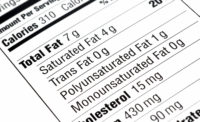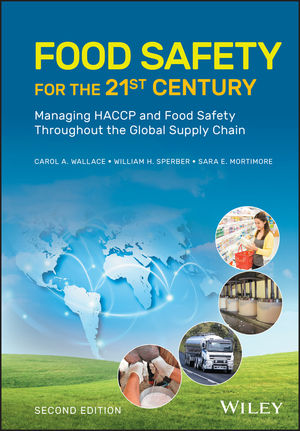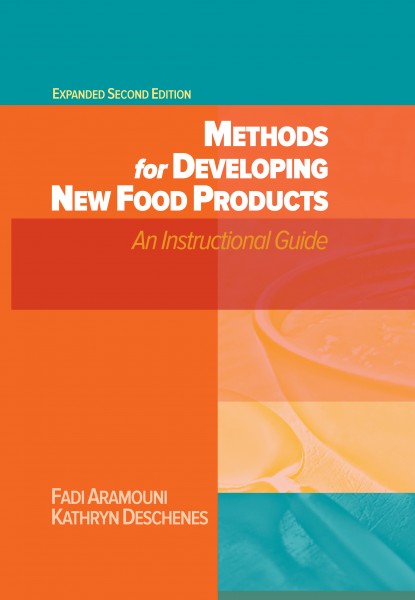Study: U.S. Demand for Food Safety Products to Reach $4.5B in 2016
Demand for U.S. food safety products is forecast to
increase 7.3% annually to $4.5 billion in 2016, according to a new study from The Freedonia Group.
Demand for food safety products in the United States is forecast to increase 7.3% annually to $4.5 billion in 2016, according to Food Safety Products, a new study from The Freedonia Group, Inc., a Cleveland-based industry market research firm.
Solid gains will be the result of increased public awareness following recent highly publicized multistate outbreaks of foodborne illnesses, the need to comply with provisions of the Food Safety Modernization Act (FSMA) and industry initiatives that will provide a strong impetus for companies to improve their food safety practices. Additionally, growth will be driven by challenges arising from the increasingly global nature of the food supply, which adds complexity and the potential for the introduction of new pathogens from different regions.
Among major food safety product segments, smart labels and tags and software and tracking systems are expected to experience the fastest gains, reflecting a heightened emphasis on traceability in the food supply chain. Smart label and tag demand will be boosted by traceability advantages along with expanded usage in food packaging to reduce losses in perishable foods. Opportunities will also exist in the livestock market as a result of the need for improved traceability of animals to their point of origin. Gains for software and tracking systems will be supported by increased U.S. Food and Drug Administration recordkeeping requirements.
Food processing plants encompass the largest market by far, accounting for 60% of total food safety product demand in the United States in 2011. Meat applications account for the largest share of demand in this segment. Robust growth is anticipated for diagnostic products in meat applications based on microbiological testing necessitated by Hazard Analysis and Critical Control Point (HACCP) regulations and implementation of a new U.S. Department of Agriculture policy that will expand routine sampling of beef to include six additional E. coli strains.
The smaller fresh prepared food market will log rapid advances, supported by increases in production and consumer demand for convenient meal options.
Among other food safety markets, the farm market will present the strongest opportunities, the result of expanded disinfection and pathogen testing activities among produce growers following several multi-state outbreaks of foodborne illnesses in the past several years.
Demand for food safety products in the United States is forecast to increase 7.3% annually to $4.5 billion in 2016, according to Food Safety Products, a new study from The Freedonia Group, Inc., a Cleveland-based industry market research firm.
Solid gains will be the result of increased public awareness following recent highly publicized multistate outbreaks of foodborne illnesses, the need to comply with provisions of the Food Safety Modernization Act (FSMA) and industry initiatives that will provide a strong impetus for companies to improve their food safety practices. Additionally, growth will be driven by challenges arising from the increasingly global nature of the food supply, which adds complexity and the potential for the introduction of new pathogens from different regions.
Among major food safety product segments, smart labels and tags and software and tracking systems are expected to experience the fastest gains, reflecting a heightened emphasis on traceability in the food supply chain. Smart label and tag demand will be boosted by traceability advantages along with expanded usage in food packaging to reduce losses in perishable foods. Opportunities will also exist in the livestock market as a result of the need for improved traceability of animals to their point of origin. Gains for software and tracking systems will be supported by increased U.S. Food and Drug Administration recordkeeping requirements.
Food processing plants encompass the largest market by far, accounting for 60% of total food safety product demand in the United States in 2011. Meat applications account for the largest share of demand in this segment. Robust growth is anticipated for diagnostic products in meat applications based on microbiological testing necessitated by Hazard Analysis and Critical Control Point (HACCP) regulations and implementation of a new U.S. Department of Agriculture policy that will expand routine sampling of beef to include six additional E. coli strains.
The smaller fresh prepared food market will log rapid advances, supported by increases in production and consumer demand for convenient meal options.
Among other food safety markets, the farm market will present the strongest opportunities, the result of expanded disinfection and pathogen testing activities among produce growers following several multi-state outbreaks of foodborne illnesses in the past several years.
Looking for a reprint of this article?
From high-res PDFs to custom plaques, order your copy today!







